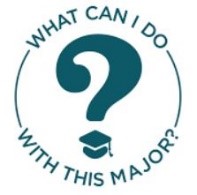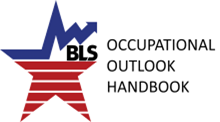Career Planning
On this page: Career Resources | Internships | Graduate School
What can you do with a degree from the School of IAS?
Employers seek people who can think critically and creatively, communicate and work effectively with various audiences, and use strong problem-solving skills to address complex issues. Students in IAS majors develop these skills and more through a combination of classroom and hands-on learning experiences such as internships, community engagement, independent research, and study abroad.
The following resources can help IAS students enhance their skills and demonstrate readiness for careers, graduate school, and other professional opportunities:
Career Resources
UW Bothell Career Services offers a wide array of resources to help IAS students explore career interests, build skills, and connect with the employment community.
Visit the UW Bothell Career Services webpage to view available services and learn how to schedule an appointment with a career advisor in-person or online.
Online career resources are provided free of charge to UW students, and just a few popular tools are featured below. Visit the UW Bothell Career Services webpage to find more free career tools, and check out the Career & Internship Center calendar for upcoming workshops, career fairs, and more.

The Majors & Career Exploration webpage provides access to What Can I Do With This Major?, a tool that features information on common career paths and typical employers for individual majors. The tool also lists strategies to help students build experience in different career fields.

LinkedIn Learning is an on-demand video learning platform to help you develop and enhance skills. Free access to LinkedIn is provided to all UW students. Unlimited access is available 24/7 on desktop, mobile, and tablet devices anywhere with internet. A convenient mobile app makes it easy to download videos for offline viewing.

Handshake is a free resource for UW students and alumni to search and find internships, part-time and full-time jobs, volunteer opportunities and more. By logging into Handshake, you have access to thousands of opportunities that you can directly apply to using your uploaded resume, cover letter and unofficial transcripts. You’ll also find up-to-date information about employers interviewing on campus and more.

The Vault Guides to Jobs series provides essential information about key careers and industries, with an emphasis on preparing for a career and getting your foot in the door. Each volume is loaded with up-to-date information on industry trends, employment and earnings statistics, and what employers look for in job candidates.

The Occupational Outlook Handbook (OOH) is a career resource that provides information about hundreds of jobs in the U.S. including working conditions, training and education, earnings and job outlook. The handbook is published by the U.S. Department of Labor’s Bureau of Labor Statistics (BLS) and is revised every two years.
Internships
An internship can help shape your career trajectory, expand your professional network, build your resume, and bolster your chances of securing meaningful employment after graduation. Plan your internship goals early! Visit the Career & Internship webpage for informational handouts and upcoming workshops on these and other topics:
- International Students and Internships
- Finding Funding for Unpaid Internships
- How to Find Internships on Handshake
There are many effective ways to find internships, either by networking, attending career fairs, visiting employer websites, or other sites like Idealist.org.
IAS students can get personalized help by making an appointment with a UW Bothell Career Coach. Coaches offer one-on-one advising on your internship search strategy, application materials, and how to maximize your internship experience.
Students can also find internships on Handshake, UW’s free online job and internship database. Employers such as Google, Microsoft, Starbucks and Nordstrom use Handshake to advertise internship opportunities to UW students!
Follow these tips to boost your internship search on Handshake:
- Complete your Handshake profile! Over 80% of students who fill out it out get an employer message.
- Use filters in Handshake to find relevant postings. Start with geographic region or opportunity type.
- Explore the “Curated Employers” to view opportunities highlighted by the Career & Internship Center.
- International students can filter by postings that accept CPT/OPT, will sponsor, and/or don’t require US work visas.
- Employers may not use UW-specific terminology so be creative with search keywords and criteria.
- Be patient and inclusive! Check back with Handshake often – recruitment timelines are not ‘one size fits all.’
- Many postings get less than three applications total from UW students. Be open to various opportunities and learn more about employers that are new to you.
- Not everything is in Handshake. We recommend using other search engines or going directly to company websites.
The School of IAS offers a quarterly BIS 495 Internship course for students who want to earn credit while completing an internship. Visit the course webpage for information about eligibility, credit hours, submitting a learning contract, and more.
Interested in graduate school?
The first step is to talk with your IAS faculty members about your ambitions. They are happy to help you plan the right courses and point you to other resources on campus. In the meantime, here are a few tips provided by the UW Seattle Career & Internship Center. Visit their website for additional resources to help you explore, prepare, and apply for a wide array of graduate and professional programs.
Perhaps graduate school has been something you have always wanted to do, or you need a graduate degree for your chosen field (law, counseling, etc.), or maybe you have recently been thinking about it for the first time. Graduate school is a big decision and a significant investment of time, energy, and financial resources. It is imperative to do some preliminary reflecting and researching before you decide to apply.
Consider:
- Purpose(s) for going
- Values and goals
- Program specifics (opportunities, costs, alumni connections, etc.)
- Application timelines and requirements
Additional questions to think about:
- What do you want to know about yourself, a program, or a career path, etc. before you start graduate school?
- What do you want to learn while in graduate school?
- What do you want to accomplish with a graduate degree? How have others accomplished this?
- What can you do now to prepare for graduate school later?
- By reflecting on your goals and plans you’ll have a solid foundation to begin the graduate school application process.
Develop a list of criteria to analyze possible graduate programs. Some possible questions to use as you conduct research:
- What kinds of support does the program provide for professional development, including assistance in finding a job after I graduate?
- Where do alumni of the program go? Could I talk to a graduate of the program?
- What kinds of financial or academic support is offered during the program? Will I be able to work or have an internship during the program?
- What is the overall structure of the program (duration, class schedule, research opportunities, etc.)? Will this structure work for me?
- What is the culture of the school and the program? What are the program’s values—how do they relate to my own values?
- Does the program’s curriculum meet requirements needed for licensure or certification?
- How much financial aid will I need? What is my expected starting salary in a first job after graduate school?
Most graduate applications have several components. Applications may be due as far out as twelve months before a program begins. Familiarize yourself with what is common for your target field of study. Develop a system for tracking and completing specific parts of the application process to ensure timely and accurate completion of your materials. Be sure to check for:
- Standardized Tests or Exams (GRE, MCAT, LSAT, DAT, GMAT, etc.)
- Letters of Recommendation (one or multiple recommenders) > Personal Statement (one or multiple essays)
- Official or unofficial academic transcripts
- Resume or Curriculum Vitae
- Other information, depending on program and field
Some programs also require an interview after an initial review of applications. Interviews are common in health fields, doctoral programs in life sciences, law school, and business school.
Start by developing professional relationships with work supervisors, faculty members and others well in advance of when applications are due. Specific ways to demonstrate your interest include working hard, attending office hours, asking questions, and working well on group projects.
Plan to have at least three recommenders. Select recommenders based on how well they know you and feel comfortable speaking to your ability to succeed in a graduate program.
When you ask recommenders, provide supporting materials and information to assist the letter writing process (resume, samples of work, personal statement, etc.). Be sure to outline how many letters will be needed and their respective due dates. Send a sincere thank you note to each recommender at the end of the process.
Writing an effective personal statement means knowing yourself, telling your story, and showing how you match specific programs and areas of faculty research. Many places on campus offer assistance for current UW students with crafting a strong statement including:
Many people take a gap year or years between finishing their bachelor’s degree and starting graduate school. In some fields it is even advantageous to work for a while before going back! If you are planning to apply in a few years there are many ways to start preparing now:
- Maintain relationships with faculty members. Let them know you are considering graduate school.
- Get involved in your field of interest. Attend lectures, volunteer, do research, travel or other related pursuits.
- Practice writing. Most grad programs require a lot of writing! Draft out some paragraphs of a personal statement.
- Conduct informational interviews with alumni. Learn about career paths associated with graduate programs.
- Read scholarly articles in your field. Journal articles and books are available at most public libraries for free to members.
- Take standardized tests. Many scores are good for multiple years, so plan ahead and get studying!
Also check out resources provided by UW Bothell Career Services and UW Libraries!
